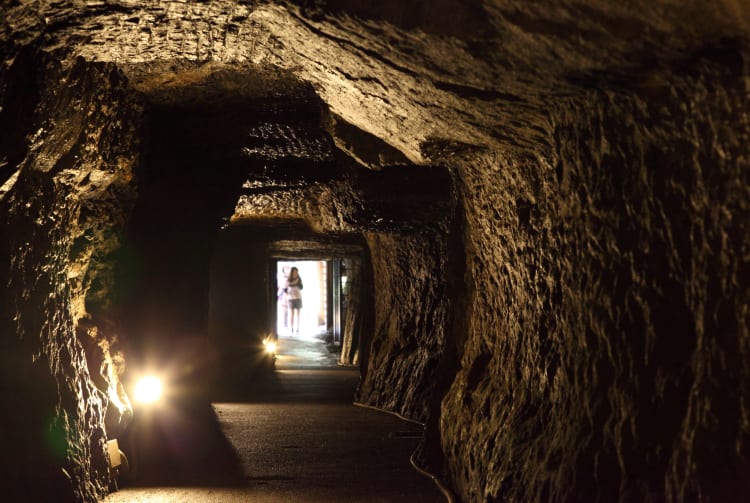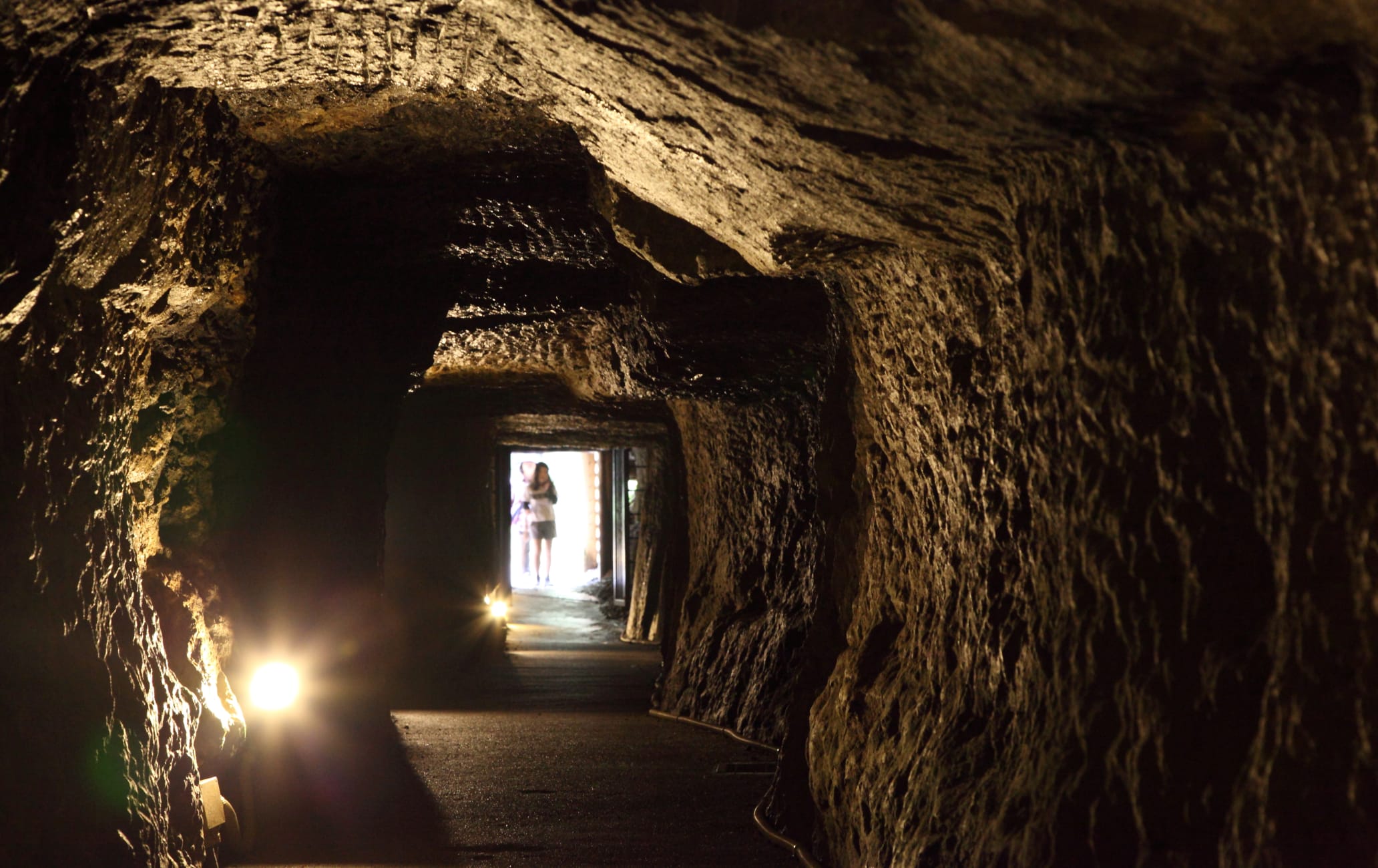A mountain mine that once supplied much of the world's silver
There are more than 600 mine shafts dug into the mountains at Iwami Ginzan, and Ryugenji Mabu is one of them. Excavated in 1715 and stretching for 600 meters, the Ryugenji Mabu Mine Shaft is open to the public.
You can explore a significant portion of the Ryugenji Mabu Mine Shaft and see marks on the walls where the miners dug out the tunnel. The shaft is well-illuminated by electric light and easy to explore.
Quick Facts
At its peak, the Iwami Ginzan silver mine produced 38 tons of silver a year
The mine operated for 400 years
Silver was traded with the Chinese, Dutch and Portuguese

How to Get There
No vehicles are allowed in the mine area, so from Omori , located three kilometers down the valley, you can walk, rent an electric bicycle, or take a human-powered velotaxi.
Cool in summer, warm in winter
The silver mine and its mine shafts maintain a mild temperature throughout the seasons. You will occasionally see narrower shafts heading off deeper into the mountain, and all around are marks left by the tools used to dig the narrow shafts.

Domain of the bats
If you are feeling more adventurous, it is possible to take a guided, small-group tour of an older, longer mine shaft, Okubo Mabu. Wearing waterproof boots and a safety helmet and carrying a flashlight, you can traverse this shaft that is narrower, wetter and more uneven than the Ryugenji Mabu shaft, and only illuminated by an occasional light bulb.
The tour, which does not operate during the winter when the Okubo Mabu shaft is inhabited by large numbers of bats, is usually conducted in Japanese, but sometimes an English-speaking guide can be arranged. Make a booking at the World Heritage Center.

























































